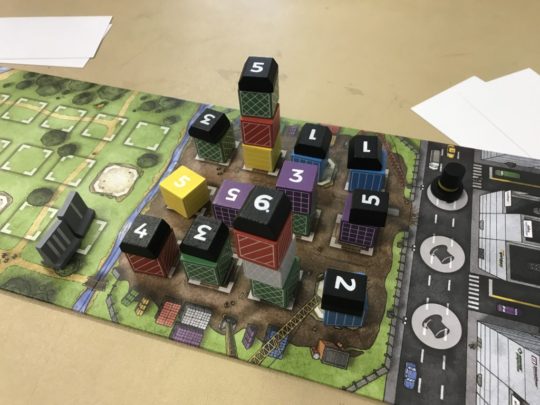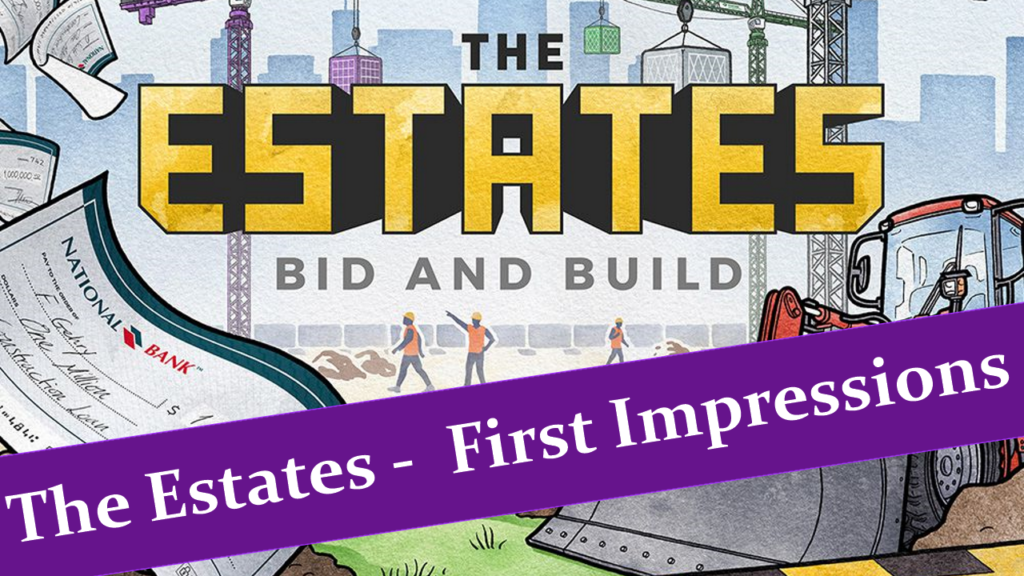In the Estates, you choose a thing, auction the thing and use the thing.
Simple!
The City Council recently approved the zoning map for a new urban development featuring high-end infrastructure and a modern atmosphere for its citizens. The zoning map for The Estates calls for two rows of four buildings each. But, investors and building tycoons entirely ignore the City Council’s demands and begin developing three rows of buildings instead.
The Mayor catches wind of the potential for profit and begins planning a new mansion in which would double the value of one of the building rows!
The City Council takes rigorous steps to put an end to the racketeering with an ultimatum: As soon as the first two rows are completed, the buildings in the uncompleted row will be torn down, resulting in a huge loss for all who invested there.
The Estates Summary
Hmm, how do you compare this game to others? It’s quite unique.
You can’t really compare it to auction games like For Sale because it’s very different. The auction, in this case, is all about setting the price. As the active player, you choose the piece and decide its starting value. This value needs to be based on what it’s worth to you, and the other players.
The ownership of the building is reminiscent of Manhattan. You own that tower if you own the top piece. But here ownership of a ‘colour’ goes to the player that first bought that colour. So, as a player, you can ‘gift’ ownership to another player including giving them ownership of a high-value building in a row that will score negatively.
The game also reminds me of games like Keyflower and Bruges. Here you’re building up to something with no idea how the end game will be. You store coal, but the ‘Score points for coal’ tile doesn’t come in Keyflower. It feels like that to me.

The Game
The components and art are nice. The cheques for money are thin cards, not paper and work well. They’re also individually ‘signed’ and numbered, they’re all different which is fun.
The auction part is great. Once around the table, done. Then, as the winner, you either gain the piece up for auction or gain the amount you bid. It’s very clever, very quick and gives you a different way to think during an auction.
The rest of the game is OK. I still don’t like how the end game is difficult to see. You know that at least one row isn’t going to score, which one? No idea.
I just feel that for such a big part of the game, I’d like to have a bit more input and a little bit of control to the final scoring.
Jesta ThaRogue



Leave a Reply